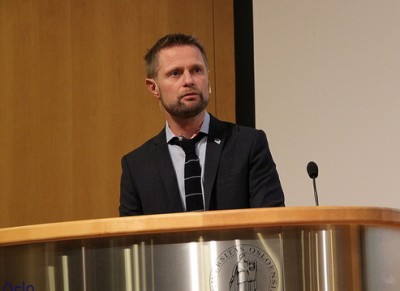Norway’s conservative government revealed the details of its controversial plans to modify abortion laws this week. Under the changes, doctors could not only refuse to perform terminations but could also refuse to refer women for one, and that’s set off strong reaction. Doctors doing so, though, would be publicly registered and municipalities could refuse to employ doctors who won’t perform the procedure.

The country’s current abortion laws from 1975 give women the right to an abortion, and doctors the right to refuse to perform one. But there has been confusion over whether doctors can refer women on for abortions, reported newspaper Dagsavisen. In October 2011, the Health Ministry decided doctors did not have the right to refuse to refer women for abortions, confirmed by the then Health Minister Jonas Gahr Støre last January. The new conservative government’s changes would give doctors the right to refuse referrals. It has the support of the Medical Association (Legeforeningen) but polls indicate it does not have the support of the vast majority of Norwegians.
“Today’s situation is untenable for patients, because it is so complicated,” Conserative Health Minister Bent Høie told newspaper Aftenposten. He said too much uncertainty exists for both patients and doctors, particularly because there’s no public record of which doctors refuse to perform or refer abortions. The government has no idea how many doctors have opted out. “Reserving the right to refer abortions is in no way a private matter, because it has significance for patient care,” said Høie.
The changes also clear up confusion over whether doctors can refuse to prescribe the contraceptive pill, an intrauterine coil or other firms of birth control. While doctors will be able to refuse abortion referrals, they can’t refuse to prescribe contraception on conscientious grounds.
In an Aftenposten survey of Norway’s 428 municipalities, 254 or 60 percent responded or had publicly available information about doctors’ stance on abortion. The investigation found 20 doctors who refused abortions. It also discovered nine who refused to insert a contraceptive coil. “That is not allowed, and it won’t be allowed,” said Høie, explaining that the Health Department can’t oversee doctors’ practices. “We are dependent on patients complaining if they experience these cases.”
Regional powers
Under the changes, regional councils can refuse to hire doctors who opt out of abortions and referrals, and remove doctors’ reservation rights if there are no other doctors in the area with room for new patients. Doctors must notify all patients on their books if they’re against terminations, and be registered on the minfastlege.no website. He or she must also ensure patients considering abortion get the opportunity to see another local doctor no later than the next business day.
Høie said municipalities will have a lot of power when it comes to making sure women don’t suffer any undue disadvantage. “Women should get the medical help they need without any unfounded delay,” he told Aftenposten. “County governments will consider the agreements the councils enter, and can disallow them if they don’t believe they meet patients needs well enough.”
The head of Norway’s biggest labour union Fagforbundet, Mette Nord, has asked all members to do what it takes to make sure their local governments reject doctors against abortions. “They have an overarching responsibility that all residents get the health care they need,” she said. “That means they can’t approve doctors who almost set themselves up as a moral guardian of women’s choices.”
The Labour Party’s health spokesman Torgeir Micaelsen said the fact local governments will get so much power to choose what’s best for their municipalities will create confusing differences in practice between regions. “This is a fundamental question that should be decided by parliament and the government, not a random majority in the municipalities,” he criticized.
The Liberal’s Ketil Kjenseth said his party will vote against the legislation in parliament, and believes many local Liberal politicians will vote against the reservation rights at the local government level. “Small communities can be put in a very difficult situation,” he said. “For them, the choice can be between hiring a doctor refusing abortions, or not getting a doctor at all.”
Politicians divided
The legislative change was driven by the Christian Democrats Party (Kristelig Folkeparti, KrF) as part of a deal to lend its support to the Conservative/Progress (Høyre/Fremskrittspartiet, FrP) government coalition last October. KrF, which only had 5.6 percent of the vote at last fall’s national election, is also the only political party in which a majority support the proposed abortion law changes. The Liberals (Venstre), Labour (Arbeidepartiet, Ap), Center Party (Senterpartiet, Sp) and Socialist Left (Sosialistisk Venstreparti, SV) oppose the reservation legislation, reported Aftenposten.
Some Conservative politicians also voiced concerns themselves over the Abortion Act changes, reported Dagsavisen. Kristin Ørmen Johnsen said she supported the law because it’s important women know which doctors refuse abortion, but she believes the debate has been oversimplified. “It’s about reflections on life and death, and there is nothing which questions women’s rights,” she said. Erik Skutle said he had fundamental misgivings about the reservation rights, but believes the proposal strikes a good compromise. Others told Dagsavsien they were waiting to see the guidelines before making a final decision.
Høie expects the legislation to be ready to go before parliament this autumn.
newsinenglish.no/Emily Woodgate

